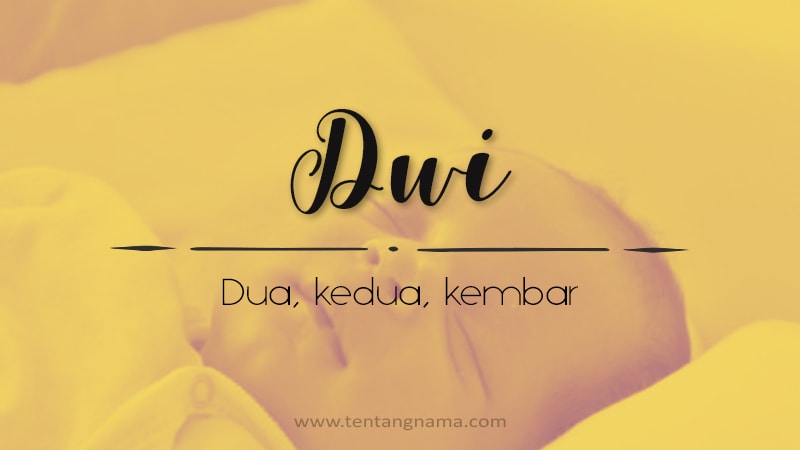Arti Nama Dwi dalam Bahasa Indonesia
Perhaps you wondered about the meaning behind this seemingly simple, yet deeply resonant name? In Indonesian culture, names aren’t just labels; they’re often imbued with significance, reflecting hopes, beliefs, and even the circumstances surrounding a child’s birth. Today, we’re going to delve into the fascinating world of the name "Dwi" in Bahasa Indonesia, exploring its meaning, origins, cultural context, and variations. Get ready for a journey into the heart of Indonesian naming traditions!

What Does "Dwi" Actually Mean? Unpacking the Basics
At its core, "Dwi" (pronounced "dwee") simply means "two" in Indonesian. Yes, you read that right – two! But why would anyone name their child "Two"? It’s not as straightforward as it seems. To understand the significance, we need to look at the cultural context.
The Significance of Birth Order in Indonesian Naming
In many Indonesian cultures, particularly in Java and Bali, birth order plays a crucial role in naming conventions. "Dwi" is typically given to the second-born child. Think of it as a subtle (or not-so-subtle!) indicator of their place in the family hierarchy.
- Firstborn: Often named with words signifying leadership, strength, or hope.
- Secondborn (Dwi): Represents the second position, balance, and companionship.
- Thirdborn: Might receive names related to continuity or stability.
Isn’t it interesting how a single word can carry so much cultural weight?
Beyond "Two": The Nuances and Interpretations of "Dwi"
While "Dwi" literally translates to "two," its meaning goes beyond a simple numerical designation. It often symbolizes:
- Balance: The second child is seen as bringing balance to the family dynamic.
- Partnership: The name suggests a close relationship with the firstborn sibling.
- Harmony: The second child contributes to a harmonious family environment.
Essentially, "Dwi" embodies the concept of duality and the interconnectedness of family members. It’s not just about being second; it’s about the role that second position plays in the overall family structure.
Is "Dwi" Only for Second Children?
While traditionally associated with second-born children, naming practices are evolving. In modern Indonesia, you might encounter individuals named Dwi who aren’t actually the second child. This could be due to:
- Personal Preference: Parents simply like the sound or meaning of the name.
- Cultural Fusion: Mixing of different naming traditions within families.
- Modern Interpretations: Viewing "Dwi" as representing duality or balance in a broader sense.
So, while the historical connection to birth order remains strong, it’s not an absolute rule anymore.
Common Variations and Combinations with "Dwi"
"Dwi" is often used as a prefix or part of a longer name, adding layers of meaning and personalization. Here are some common examples:





